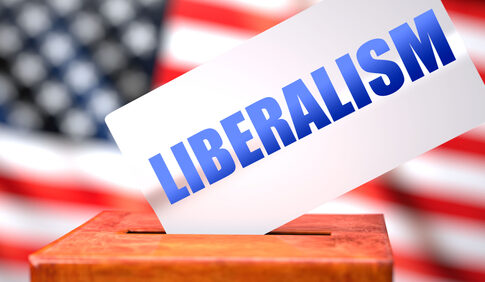If you want to find conservatives, never look here. PBS NewsHour aired three Democratic primary challengers criticizing party leadership without identifying their far-left positions. Reporter Laura Barron-Lopez received criticism for conducting interviews that appeared promotional rather than journalistically balanced. The candidates used strong anti-Trump rhetoric and called for more aggressive opposition from Democrats.
Bias in Public Broadcasting
PBS News Hour has come under fire for what critics describe as a pattern of favoritism toward left-wing voices in its political reporting. A recent segment that aired on the publicly funded network has drawn particular scrutiny for featuring three Democratic primary challengers who are running against more moderate incumbents without properly identifying their ideological positions. The challengers – Mallory McMorrow, Jake Rakov, and Kat Abughazaleh – were presented to viewers without labels such as “progressive,” “liberal,” or “left-wing,” despite their political positions falling firmly on the far left of the Democratic spectrum.
The segment in question appeared designed to amplify candidates who believe the current Democratic leadership isn’t being aggressive enough in opposing the Trump administration. This editorial choice has raised questions about PBS’s commitment to providing balanced political coverage, especially considering that taxpayer dollars help fund the network’s operations. Critics suggest this represents a troubling trend where public broadcasting appears to be promoting particular political viewpoints while claiming to present diverse perspectives.
STATE FUNDED MEDIA: NPR and PBS persist in denying the glaring bias embedded in their reporting. They’ve become unapologetic purveyors of far-left propaganda, deceiving the American public on matters of real consequence. pic.twitter.com/vDHCxQz9Ut
— @amuse (@amuse) March 27, 2025
Uncritical Platform for Anti-Trump Rhetoric
During the PBS News Hour segment, the Democratic challengers were given substantial airtime to express strong anti-Trump sentiments without facing challenging questions about their own policy positions. The candidates freely described the Trump administration using terms like “authoritarian” and “chaotic,” with reporter Laura Barron-Lopez offering little pushback or context about these characterizations. This approach has led some viewers to question whether the segment was intended as journalism or served more as a promotional platform for candidates challenging Democratic incumbents from the left.
The candidates repeatedly criticized the Democratic Party establishment for what they characterized as insufficient opposition to Trump’s policies. Jake Rakov expressed frustration with party leadership, saying they were responding too slowly to Trump’s actions. This narrative of the Democratic Party as “feckless” in confronting Trump was reinforced by journalist Jasmine Wright during the segment, further suggesting an editorial slant in the coverage that aligned with the challengers’ perspectives rather than offering a balanced assessment.
“PBS wants the federal money, we are not biased.” On @foxnewsnight, @tracegallagher: “@NewsBusters had a study and guess what they found? So sad. Put it up on the screen: Since January 25 to May 19th, 173 liberal/Democratic leaning guests, 41 conservative/Republican leaning… pic.twitter.com/czNNGy26Dp
— MRC NewsBusters (@newsbusters) May 29, 2025
Missing Labels and Context
Perhaps most concerning to critics was PBS NewsHour’s complete omission of ideological identifiers for the featured candidates. At no point during the segment were terms like “progressive,” “liberal,” “left,” or “socialist” used to help viewers understand where these challengers stand politically relative to the Democratic incumbents they’re opposing. This stands in contrast to how conservative or Republican figures are typically identified on the program, where ideological labels are regularly applied.
The absence of proper labeling and context for these far-left challengers appears particularly problematic given PBS’s mandate as a public broadcaster to provide fair and balanced coverage. By presenting these candidates simply as “Democrats” without explaining their position on the political spectrum, PBS potentially misleads viewers about the nature of the intra-party disputes being highlighted. This editorial choice reinforces concerns that the network may be using its platform to subtly promote certain political viewpoints over others while maintaining the appearance of neutrality.


